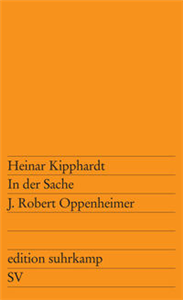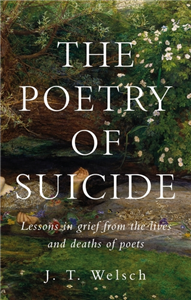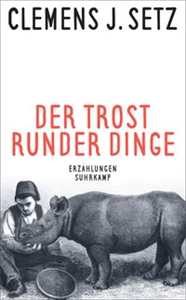Your Search Results
-
Get Fresh Books Publishing
Get Fresh Books Publishing is a non-profit, cooperative press devoted to amplifying diverse voices in poetry and making the publication process accessible to marginalized communities. Our primary objective is to provide opportunities for underrepresented voices by eliminating economic and societal barriers, such as submission fees and contests, which may inhibit marginalized voices from contributing to the literary conversation. As a cooperative press, we encourage manuscript submissions from BIPOC, LGBTQ+, people with disabilities and people living with mental illnesses. By doing so, we explicitly reject any “ism” or phobia which seeks to suppress the voices of those who receive insufficient or inadequate representation in literature. In the four short years of our founding, we have been able to preserve our commitment to diversity and inclusivity by publishing the work of 12 talented and distinct poets, whose poetry cover a wide range of topics from ethnicity, sexuality and religion to immigration, suicide and discrimination. Our press’s cooperative process of integrating the ideas and skills of our poets, editors and publisher have given us the ability to bring fresh and diverse voices into the literary world. With the help of donations, grants and private investments, we have been able to publish each literary work without charging a single submission fee to ensure that poets and writers of all ages, ethnicities, sexual orientations, abilities, and economic statuses would have their voices heard.
View Rights Portal
-
Promoted Content
-
Promoted ContentNovember 2021
Poster Clemens J. Setz (A1)
plano, nicht gefaltet | Für Fans der Setz’schen Werke und seiner Person
by Clemens J. Setz
»Wer den Chor der Mäuse nicht hört, braucht nicht mit mir befreundet zu sein.« Clemens J. Setz ist der Autor bahnbrechender Romane wie Die Stunde zwischen Frau und Gitarre, aufregender Erzählungsbände wie Der Trost runder Dinge, von Gedichten, Theaterstücken, Drehbüchern, Nacherzählungen und Essays. Er ist Übersetzer, ein Freund der Plansprachen, des Obertongesanges, der Ziegen und der Hasen. Er ist Träger des Georg-Büchner-Preises, des Kleist-Preises, des Berliner Literaturpreises. Außerdem ist er ein Poet der Kurznachrichtendienste und noch einiges mehr. In seiner radikalen Vielfältigkeit und vielfältigen Radikalität ist er eine herausragende Figur der Gegenwartsliteratur. Für Fans der Setz’schen Werke und seiner Person ist dieses hochwertige Plakat mit einem Porträt des Dichters gedacht, aufgenommen vom Berliner Fotografen Max Zerrahn. Poster auf stabilem GalaxyArt-Papier im DIN-A1-Format
-
 Trusted Partner
Literature & Literary StudiesMarch 2025
Trusted Partner
Literature & Literary StudiesMarch 2025Through the fiction of Phebe Gibbes (1764–90)
Women, alienation, and prodigality in the long eighteenth century
by Kathryn Freeman
Through the Fiction of Phebe Gibbes places this prolific, newly recovered English writer at the centre of the revolutionary period. Gibbes's novels mark the struggles of women for agency in an expanding British empire, from the Seven Years' War to revolutions in American, Haiti and France. With Gibbes as a nexus in a lineage of women writers from Aphra Behn to Jane Austen, Kathryn S. Freeman offers a valuable perspective on the 'long eighteenth century', with Gibbes' own evolution mirroring that of the larger period. The study traces the development of Gibbes' authorial voice from satire to irony through a range of female characters subverting patriarchal oppression. Freeman guides the reader through patterns of narrative voice, concerns with gender and sexuality, and elements of wordplay through detailed discussion of five novels representing Gibbes' evolving representation of a subversive female subjectivity.
-
 Trusted Partner
March 2010
Trusted Partner
March 2010Onkel J.
Heimatkunde
by Andreas Maier
Seit seinem Debüterfolg mit dem Roman Wäldchestag im Jahr 2000 ist Andreas Maier häufig unterwegs, um aus seinen Romanen zu lesen. Nur daß er in den letzten ein, zwei Jahren meist, wenn er eingeladen war, auch immer wieder schon aus dem kommenden Onkel J. las. Jedesmal hatte er damit das Publikum im Handumdrehen auf seiner Seite. Umstandslos fand man sich angeschlossen an Maiers Welt aus Wetterau, Familie, Fußball, Apfelwein, aus Thomas Bernhard und dem Evangelium nach Matthäus, aus Ängsten, Kneipenfreuden und -nöten, eingepackt in absurde Vorkommnisse und komische Erlebnisse. Jede Kolumne beginnt mit einem »Neulich«-Satz, die erste so: »Neulich war ich in Berlin. Das wird jetzt niemand weiter ungewöhnlich finden, aber ich bin Hesse, und mir ging in Berlin ein Wunsch in Erfüllung.« Dennoch handelt es sich um alles andere als ein Kolumnenbuch. Vielmehr nimmt Onkel J. – im Übergang von den ersten vier Romanen zu Maiers Projekt »Ortsumgehung« – eine zentrale Stelle ein. »Alles gehört zusammen, und für alles ist das Kolumnenbuch der Kern.«
-
 Trusted Partner
March 1964
Trusted Partner
March 1964In der Sache J. Robert Oppenheimer
Ein szenischer Bericht
by Heinar Kipphardt
Eine historische Begebenheit liegt diesem szenischen Bericht zu Grunde: der Fall Oppenheimer. Am 12. April 1954 begann in Washington die Untersuchung gegen den Physiker und langjährigen Leiter der amerikanischen Atomforschung J. Robert Oppenheimer. Der Untersuchungsausschuß, von der Atomenergiekommission der USA eingesetzt, sollte prüfen, ob sich der Wissenschaftler der Regierung seines Landes gegenüber loyal verhalten habe. Das drei Wochen währende Verhör, Beispiel und Ausdruck des Konflikts zwischen Individuum und Gesellschaft, Wissenschaft und Staat, zählt zu den denkwürdigen Ereignissen der Zeitgeschichte.
-
 Trusted Partner
November 1994
Trusted Partner
November 1994Sozialer Wandel
Modellbildung und theoretische Ansätze. Herausgegeben von Hans-Peter Müller und Michael Schmid
by Michael Schmid, Hans-Peter Müller
Als Ende der sechziger Jahre Wolfgang Zapf seinen nunmehr klassichen Band über »Theorien sozialen Wandels« einleitete, konnte er auf das sich damals herauskristallisierende Paradigma der Makrosoziologie verweisen. Er stürzte sich – cum grano salis – methodisch auf einen strukturell-funktionalen Ansatz, theoretisch auf die Differenzierungstheorie und in der historisch-praktischen Anwendung auf die Modernisierungsforschung. Inzwischen hat sich dieses Paradigma aufgelöst und entlang der genannten Richtungen ausdifferenziert. »Paradigmatisch« läßt sich ein theoretischer Kern nicht mehr eindeutig identifizieren, sondern es können nur noch methodologische Minimalstandards dynamischer Analysen ausgewiesen werden. Ausgehend von modelltheoretischen Überlegungen (Neil J. Smelser und Gudmund Hernes), umfaßt der Band differenzierungstheoretische (Renate Mayntz), strukturationstheoretische (Anthony Giddens), kulturtheoretische (Margaret Archer), selektionstheoretische (Bernhard Giesen), bewegungstheoretische (Klaus Eder), populationsökologische (Michael Hannan und John Freeman) sowie institutionentheoretische (Tom R. Burns und Thomas Dietz) Ansätze.
-
 Trusted Partner
Trusted Partner
-
 Trusted Partner
Trusted Partner
-
 Trusted Partner
Literature & Literary StudiesApril 2026
Trusted Partner
Literature & Literary StudiesApril 2026The poetry of suicide
Lessons in grief from the lives and deaths of poets
by J. T. Welsch
A profound exploration of the connection between poetry and suicide. 'Suicides have a special language,' Anne Sexton wrote in her 1964 poem 'Wanting to Die'. But is it a language we can learn to read? In The poetry of suicide, J. T. Welsch interweaves stories of poets who took their own lives with the long history of suicide in his own family, searching for a new way of understanding these difficult deaths. Beginning with Hamlet's 'To be or not to be?', he delves into the work of Dante, Sylvia Plath, Vladimir Mayakovsky and others, asking what it can teach us about suicide's messy reality. Suicide is more like poetry than we realise, Welsch argues. Both are filled with ambiguities, contradictions and unknowable intentions. Both demand and resist interpretation. Recovering the personal dimension often lost in our medicalised public discourse, Welsch finds practical ways of confronting suicide's poem-like difficulties.
-
 Trusted Partner
The ArtsDecember 2007
Trusted Partner
The ArtsDecember 2007J. M. W. Turner
The making of a modern artist
by Sam Smiles, Alan Rutter
Alone of his contemporaries, J.M.W. Turner is commonly held to have prefigured modern painting, as signalled in the existence of The Turner Prize for contemporary art. Our celebration of his achievement is very different to what Victorian critics made of his art. This book shows how Turner was reinvented to become the artist we recognise today. On Turner's death in 1851 he was already known as an adventurous, even baffling, painter. But when the Court of Chancery decreed that the contents of his studio should be given to the nation, another side of his art was revealed that effected a wholescale change in his reputation. This book acts as a guide to the reactions of art writers and curators from the 1850s to the 1960s as they attempted to come to terms with his work. It documents how Turner was interpreted and how his work was displayed in Britain, in Europe and in North America, concentrating on the ways in which his artistic identity was manipulated by art writers, by curators at the Tate and by designers of exhibitions for the British Council and other bodies. ;
-
 Trusted Partner
May 1973
Trusted Partner
May 1973Das Vokabular der Psychoanalyse
by J. Laplanche, J.-B. Pontalis, Emma Moersch, Daniel Lagache
Der Psychoanalytiker J. Laplanche und der Philosoph J.-B. Pontalis haben die gesamte psychoanalytische Literatur durchgearbeitet und zu einem »Vokabular der Psychoanalyse« zusammengetragen. Das Vokabular definiert nicht nur die von Freud und einigen seiner Schüler eingeführten und mittlerweile über die halbe Welt verbreiteten Ausdrücke, sondern erörtert ihre Entstehung, ihre Wandlungen, ihren heutigen Status, um ihre Bedeutung innerhalb der psychoanalytischen Theorie und Praxis zu entschlüsseln. Der gesamte begriffliche Apparat der Psychoanalyse wird so unter drei Gesichtspunkten analysiert: Geschichte, Struktur, Problematik.
-
 Trusted Partner
January 1996
Trusted Partner
January 1996J. A. D. Ingres: Das türkische Bad
Ein Klassizist auf dem Weg zur Moderne
by Fleckner, Uwe
-
 Trusted Partner
Trusted Partner
-
 Trusted Partner
May 2012
Trusted Partner
May 2012J. G. Fichte.
Leben und Lehre. Ein Beitrag zur Aktualisierung seines Denkens und Glaubens.
by Schröder-Amtrup, Karsten
-
 Trusted Partner
Teaching, Language & ReferenceFebruary 2013
Trusted Partner
Teaching, Language & ReferenceFebruary 2013Ramon J. Sender's 'Cronica del alba'
by Catherine Davies, Anthony Trippett
Crónica del alba is a novel by Sender with a Civil War background, like the popular Réquiem por un campesino español, also in this series. The author evokes his childhood in rural Aragón at the beginning of the twentieth century in a book which has a charm and something of the character of The Adventures of Tom Sawyer. The young Pepe fights to believe in himself as a hero in the face of a world, and a father bent on putting him down. He is supported by his girlfriend, Valentina, who believes in him implicitly and often ends up in as much trouble as him. But there is something more here than scrapes and mischief-making. It is written by an older and disillusioned Pepe who has known real heroism and is now detained in a prison camp for Spanish Civil War refugees in southern France. The novel raises challenging questions about the loss of hope, how people cope with disillusionment, and the place of writing in that process. Moreover, since the novel reflects Sender's own childhood it sheds light on the complex relationship of fact and fiction in autobiographical novels. ;
-
 Trusted Partner
Trusted Partner
-
 Trusted Partner
Trusted Partner
Kaspar Hauser’s Brothers and Sisters. In search of the wild man
by P. J. Blumenthal
What makes human beings human? Is it a life in society that makes us what we are? We often hear stories of persons who have survived in the wild without social contact or who were supposedly raised by wild animals. Kaspar Hauser is probably the most well-known example, but certainly not the only one. P. J. Blumenthal has taken up the hunt for the “wild man” Homo ferus on the boundary between man and animal.
-
 Trusted Partner
October 2020
Trusted Partner
October 2020Der Trost runder Dinge
Erzählungen
by Clemens J. Setz
Clemens J. Setz erzählt über das Absurde und Groteske des menschlichen Zusammenlebens. Das ganz und gar Unerwartete bricht in das Leben seiner Figuren ein. Ihr Schöpfer erzählt davon einfühlsam, fast zärtlich. Durch Falltüren gestattet er uns Blicke auf rätselhafte Erscheinungen und in geheimnisvolle Abgründe des Alltags, man stößt auf Wiedergänger und auf Sätze, die einen mit der Zunge schnalzen lassen. Der Trost runder Dinge ist ein Buch voller Irrlichter und doppelter Böden – radikal erzählt und aufregend bis ins Detail.
-
 Trusted Partner
Trusted Partner
-
 Trusted Partner
March 1981
Trusted Partner
March 1981Restrukturierung der Gesellschaftstheorie
by Richard J. Bernstein, Holger Fliessbach
Richard J. Bernstein, geboren 1932, war Professor für Philosophie an der New Yorker New School for Social Research, an der auch Hannah Arendt bis zu ihrem Tod im Jahr 1975 lehrte. Am 4. Juli 2022 verstarb Bernstein in New York.































